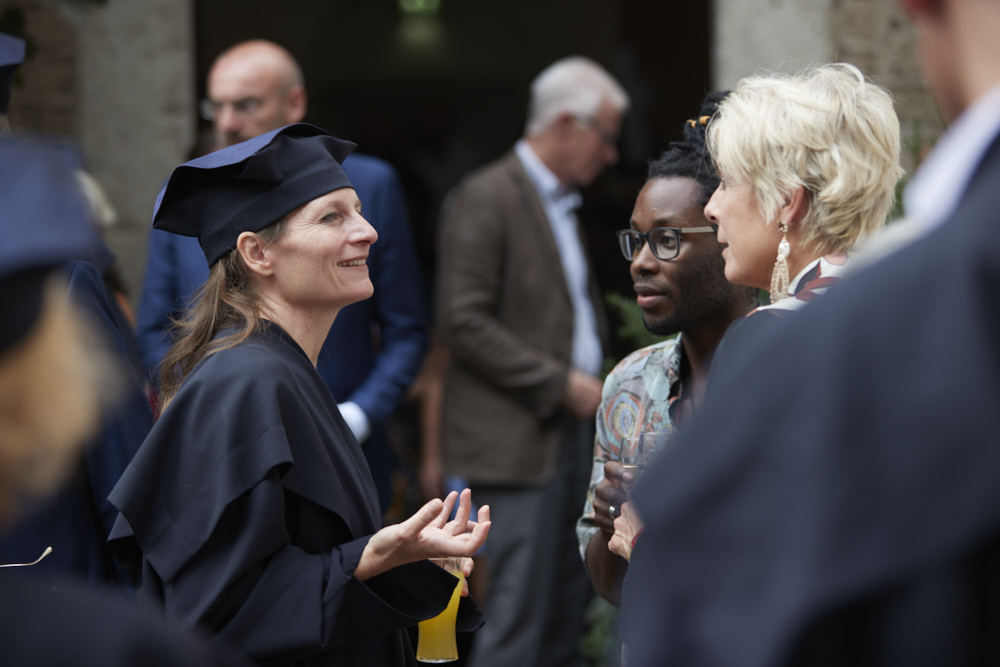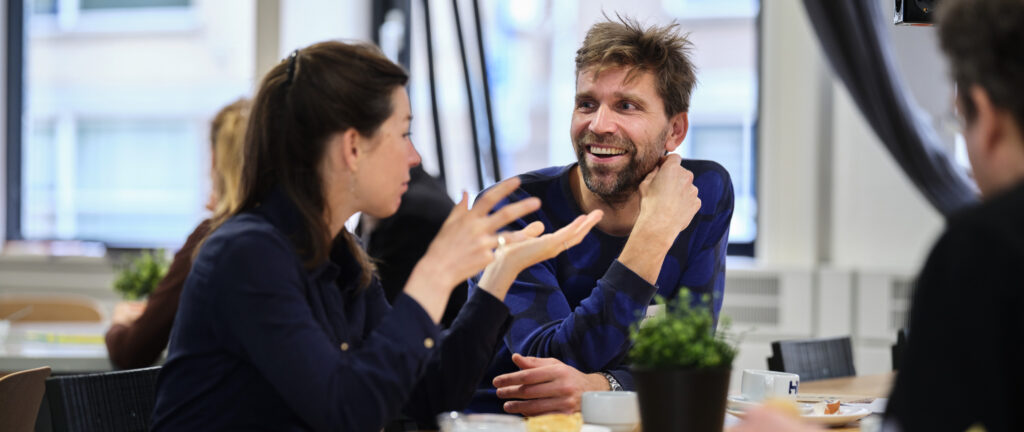‘We connect our students with society’

“What sets the University of Humanistic Studies apart is that we are a philosophical university and that our humanistic foundation is clearly reflected in our education. A second special feature of our university is its small scale: here, students and lecturers know each other by name. What also characterises us is that our lecturers are very committed. They are passionate about education.
A meaningful existence can only truly come to fruition in a society characterised by justice and solidarity. These two elements are reflected in all our programmes. That is why, in addition to academic knowledge, we also impart humanistic values to our students, enabling them to contribute to the humanisation of society and to the meaningfulness of individuals or communities later on as professionals.
This is not to say that students leave the university as a humanist, but rather that our programmes are based on humanistic values, and that we hope our students will be inspired by humanistic principles, first in their studies and later in their work and as human beings. A characteristic feature of humanism is that it attaches great importance to human autonomy: people make their own choices. This also means that you can study at our university even if you have a different philosophy of life than humanism.”
Multiple perspectives
“We believe it is important to offer students multiple perspectives on the organisation of society and the ways in which people give meaning to their lives. In addition to this academic diversity of opinion, we try to encourage diversity of opinion among students, so that they engage in dialogue with each other about what it means to live a good life and what constitutes a just society. We aim to teach students to adopt a critical, reflective attitude, but always in a constructive manner.
We therefore pay a lot of attention to the personal development of our students. Our small scale is an advantage in this respect. If you know your students as a teacher, you can guide them better and support their learning process more effectively.”
Interaction with society
“We work extensively with guest lecturers from various social sectors, so that students gain a good understanding of the professional field. This allows students to engage with practical issues during their studies. In terms of content, our programmes focus on the different ways in which societies are organised and the ideas that exist about their organisation. In the Master’s programmes in Humanistics and Citizenship and Quality of Life, students do internships at social or public organisations. In the Bachelor’s course Inclusion and Exclusion, students visit organisations, and in the third-year course Humanisation in the Public Sector, they write an organisational advisory report.
Focusing on current issues is a way of encouraging students to think about how academic knowledge can be applied to topics that are currently relevant in society. Just think of issues such as polarisation and inclusion. Another current issue that recurs in various courses is the ecological crisis. This is also receiving increasing attention within humanism. That said, we are, of course, a university, not an activist or political organisation. Our education therefore always starts from a scientific basis.”


